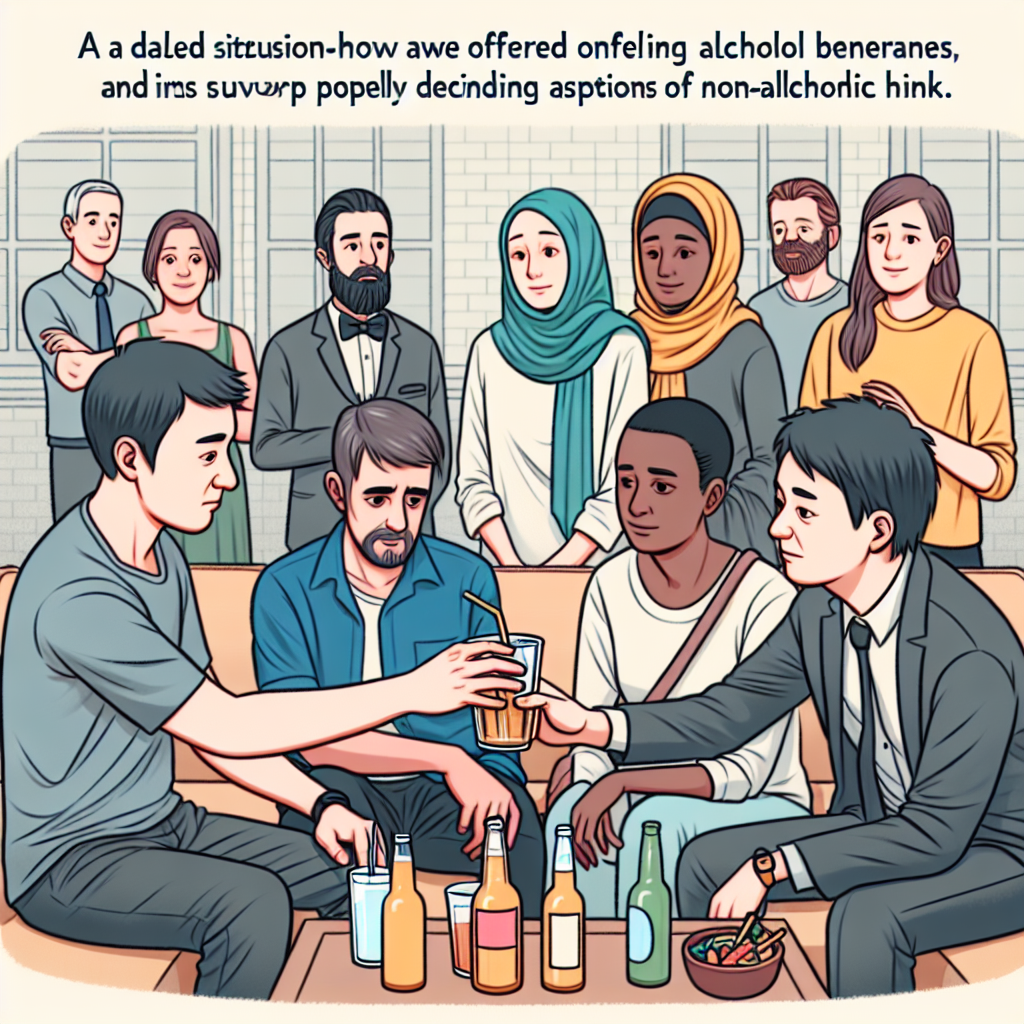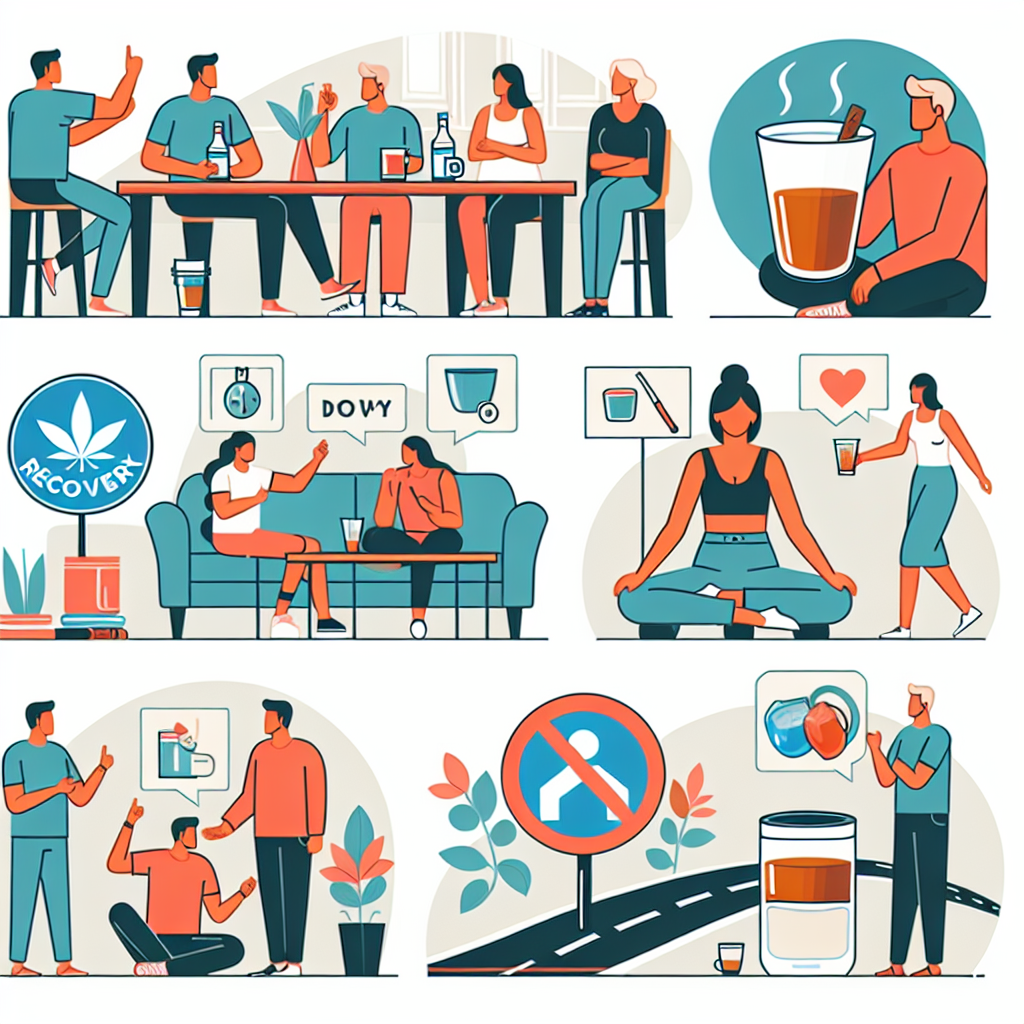-
Table of Contents

“Navigate Social Scenes with Confidence: Your Guide to Alcohol-Free Connections”
Introduction
Navigating social situations during alcohol recovery can be challenging, but with the right strategies and mindset, it is entirely possible to maintain sobriety while still enjoying social interactions. This guide provides practical tips and insights on how to handle various social scenarios, from attending parties and gatherings to dealing with peer pressure and managing stress. By understanding your triggers, setting clear boundaries, and developing a support system, you can confidently face social environments and continue your journey towards a healthier, alcohol-free life.
Strategies For Navigating Social Events Without Alcohol
Navigating social events without alcohol can be a daunting task for those in recovery, but with the right strategies, it is entirely possible to enjoy these gatherings while maintaining sobriety. The first step in handling social situations during alcohol recovery is to prepare mentally and emotionally. Understanding that your sobriety is a priority and reminding yourself of the reasons behind your decision can fortify your resolve. It is essential to have a clear plan in place before attending any event where alcohol will be present.
One effective strategy is to bring a supportive friend or family member along. Having someone who understands your journey and can offer encouragement can make a significant difference. This person can act as a buffer in uncomfortable situations and help you stay focused on your goals. Additionally, it is helpful to practice responses to common questions about why you are not drinking. Simple, straightforward answers such as “I’m focusing on my health” or “I’m driving tonight” can often suffice and prevent further probing.
Another key tactic is to always have a non-alcoholic drink in hand. This can help you feel more at ease and blend in with the crowd. Many social events now offer a variety of non-alcoholic beverages, from sparkling water to mocktails, which can be just as enjoyable as their alcoholic counterparts. By keeping a drink in hand, you can avoid the awkwardness of being offered alcohol repeatedly.
Moreover, it is crucial to set boundaries and know your limits. If you feel uncomfortable or tempted, it is perfectly acceptable to leave the event early. Your well-being is paramount, and there is no shame in prioritizing your recovery over social obligations. Communicating your boundaries to close friends and family members beforehand can also help them understand and support your decisions.
Engaging in activities that do not revolve around alcohol can also be beneficial. Suggesting alternative social gatherings, such as going to a movie, hiking, or attending a cultural event, can shift the focus away from drinking and provide a more comfortable environment. By creating new traditions and finding joy in alcohol-free activities, you can build a fulfilling social life that supports your recovery.
Furthermore, practicing mindfulness and stress-relief techniques can help you stay grounded during social events. Deep breathing exercises, meditation, or even a quick walk outside can help you manage any anxiety or stress that may arise. Staying present and focusing on the positive aspects of the event, such as connecting with friends or enjoying good food, can also enhance your experience.
Lastly, it is important to celebrate your successes and acknowledge your progress. Each social event you navigate without alcohol is a testament to your strength and commitment. Reflecting on these achievements can boost your confidence and reinforce your dedication to sobriety.
In conclusion, handling social situations during alcohol recovery requires preparation, support, and self-awareness. By implementing these strategies, you can confidently navigate social events without alcohol and continue to thrive in your recovery journey. Remember, your sobriety is a powerful testament to your resilience, and each step you take towards maintaining it is a victory worth celebrating.
Building A Supportive Social Network During Alcohol Recovery
Navigating social situations during alcohol recovery can be challenging, but building a supportive social network is crucial for long-term success. The journey to sobriety is not one that should be undertaken alone; having a strong support system can make all the difference. To begin with, it is essential to identify individuals who genuinely care about your well-being and are willing to support your recovery journey. These people can be family members, close friends, or even colleagues who understand the importance of your commitment to sobriety.
One of the first steps in building a supportive social network is to communicate openly about your recovery. Transparency is key; let your loved ones know about your decision to stop drinking and explain why it is important to you. This can help them understand your situation better and offer the support you need. Additionally, being open about your recovery can also help you identify those who may not be supportive or who may inadvertently trigger a relapse. It is important to set boundaries with such individuals to protect your sobriety.
Another effective strategy is to seek out support groups or recovery communities. These groups provide a safe space where you can share your experiences, challenges, and triumphs with others who are on a similar journey. The sense of camaraderie and understanding found in these groups can be incredibly empowering. Moreover, these communities often offer practical advice and coping strategies that can help you navigate social situations without alcohol. Whether it’s a local Alcoholics Anonymous (AA) meeting or an online support group, connecting with others who understand your struggles can be immensely beneficial.
In addition to support groups, consider engaging in activities that do not involve alcohol. This can help you build new, healthy relationships and create a social life that supports your recovery. Join clubs, take up new hobbies, or participate in community events that align with your interests. These activities not only provide a distraction from the temptation to drink but also offer opportunities to meet like-minded individuals who can become part of your support network.
It is also important to develop coping mechanisms for social situations where alcohol is present. Before attending an event, plan ahead and think about how you will handle offers of alcohol. Having a non-alcoholic drink in hand can help you feel more comfortable and reduce the likelihood of being offered a drink. Practice saying “no” politely but firmly, and if necessary, have an exit strategy in place. Surrounding yourself with supportive friends who understand your situation can also make these events less daunting.
Furthermore, consider seeking professional help if needed. Therapists and counselors who specialize in addiction recovery can provide valuable insights and tools to help you manage social situations and build a supportive network. They can also help you address any underlying issues that may have contributed to your alcohol use, making your recovery journey more comprehensive and effective.
Lastly, remember to be patient with yourself. Building a supportive social network takes time, and there may be setbacks along the way. Celebrate your progress, no matter how small, and stay focused on your long-term goals. By surrounding yourself with positive influences and engaging in healthy, fulfilling activities, you can create a social environment that supports your recovery and helps you thrive in sobriety.
Q&A
1. **Question:** How can I politely decline an alcoholic drink at a social event?
**Answer:** You can politely decline an alcoholic drink by saying, “No, thank you. I’m not drinking tonight,” or “I’m sticking to non-alcoholic beverages.”
2. **Question:** What strategies can help me stay comfortable in social situations where alcohol is present?
**Answer:** Strategies include bringing your own non-alcoholic drink, having a support person with you, planning an exit strategy if you feel uncomfortable, and practicing responses to potential questions about your sobriety.
Conclusion
Handling social situations during alcohol recovery involves several key strategies:
1. **Plan Ahead**: Anticipate potential triggers and have a plan for how to handle them.
2. **Set Boundaries**: Clearly communicate your needs and limits to friends and family.
3. **Choose Supportive Environments**: Opt for social settings that do not revolve around alcohol.
4. **Bring a Sober Friend**: Having someone who understands your situation can provide support.
5. **Practice Responses**: Prepare what you will say if offered a drink or asked about your sobriety.
6. **Stay Busy**: Engage in activities that keep your mind off drinking.
7. **Know Your Exit Strategy**: Have a plan for leaving if you feel uncomfortable or tempted.
By implementing these strategies, individuals in alcohol recovery can navigate social situations more confidently and maintain their commitment to sobriety.



